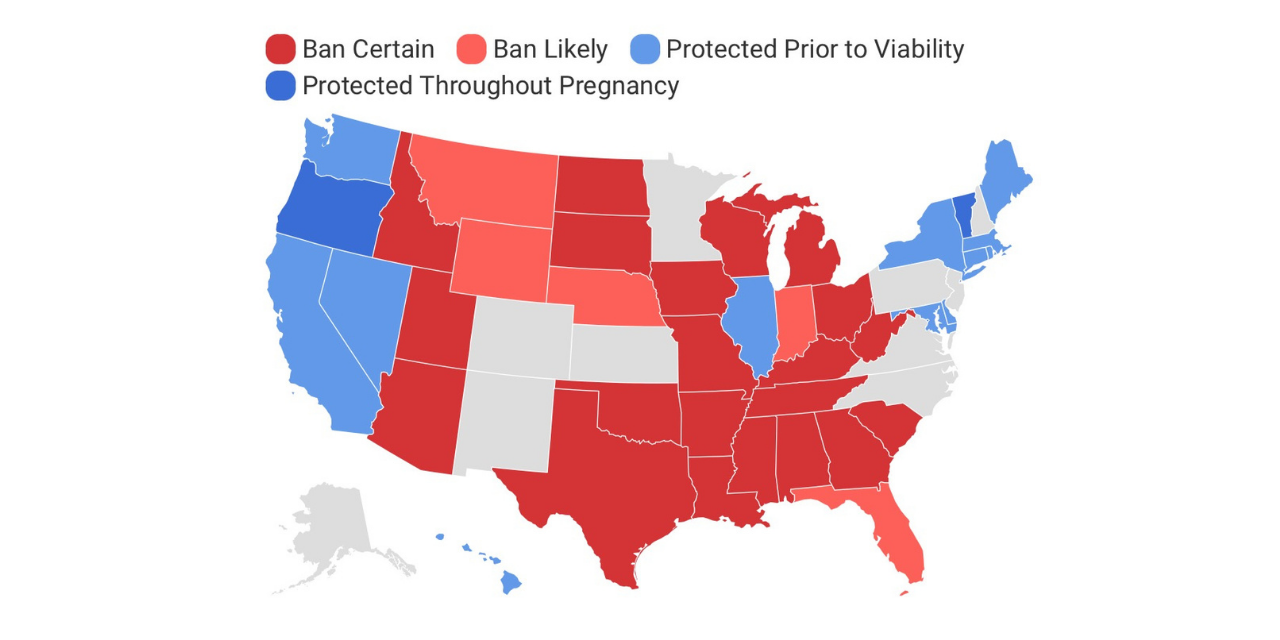Following the United States Supreme Court’s review of the Mississippi state law limiting abortion at 15 weeks gestation, most legal analysts agree that a change is coming to abortion policy in America.
For pro-life advocates, it will be a welcome change — a move towards promoting a culture of life and not death. But what exactly will the future of abortion policy be? The answer is complex and could look as different as the 50 states that make up this country.
In December, the Supreme Court reviewed Dobbs v. Jackson Women’s Health Organization and considered whether a state can limit abortion at 15 weeks gestation. Dobbs allowed the justices to revisit Roe v. Wade — the case that legalized abortion across the country.
Pro-life groups responded optimistically to the court’s review of the case and with good reason.
Oral arguments suggested that at least six justices are willing to uphold the 15-week abortion ban, and possibly five justices are willing to overturn Roe altogether.
That’s right. After nearly 50 years of bad case law, there may finally be a majority on the Supreme Court who agree that Roe was wrongly decided.
So, if they do, what will the status of abortion be in America?
Well, right now, under Roe and its sister case Planned Parenthood v. Casey, abortion restrictions are generally not permissible until viability, the time at which point a baby can live outside the womb, which is currently 22-24 weeks gestation. The line of viability continues to move earlier in gestational development because it is based on medical advancements. Indeed, scientific advancements in neonatal care protect preborn babies’ lives and help the pro-life movement.
If the Supreme Court overturns Roe, abortion would not automatically become illegal in the United States. If Roe is overturned, decisions about abortion policy would be made at the state level by the people of each state.
Some states, like Arkansas, already have pro-life laws in place that would immediately go into effect if Roe were overturned. Other states, like Colorado, have never restricted abortion, and therefore unrestricted abortion access will continue to be the law of that state.
Family Policy Alliance, a Focus on the Family ally, has developed an excellent After Roe map to identify what abortion policy would look like for each state in a post-Roe world.
It is widely expected that 26 states are certain or likely to restrict abortion if Roe is reversed.
States certain to restrict abortion include:
- Alabama
- Arizona
- Arkansas
- Georgia
- Idaho
- Iowa
- Kentucky
- Louisiana
- Michigan
- Mississippi
- Missouri
- North Dakota
- Ohio
- Oklahoma
- South Carolina
- South Dakota
- Tennessee
- Texas
- Utah
- West Virginia
- Wisconsin
States likely to restrict abortion include:
- Florida
- Indiana
- Montana
- Nebraska
- Wyoming
Make no mistake; this is not the end of the pro-life fight — this is just the beginning of the next chapter.
The abortion lobby will stop at nothing to legalize abortion in every state. They will go after pro-life policies and try to get them reversed.
It is critical that we all do our part to promote the pro-life movement in our own state.
We must elect pro-life lawmakers. Lawmakers must enact laws that protect preborn babies. And pro-life laws must be defended when the abortion lobby challenges them.
We must provide increased care for mothers and their babies.
We must continue to pray and be bold in our support of preborn human lives. The next generation is literally counting on us to be their voice.
We must do more than make abortion unlawful; we must make abortion unthinkable.
Photo from US News.






